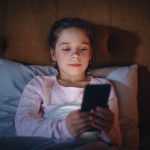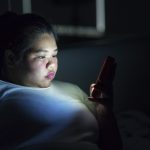Summary: The National Sleep Foundation’s latest report reveals that nearly one in five US adults, around 45 million people, experienced worsened sleep during the 2024 presidential election. Those affected reported shorter weekend sleep durations and poorer overall sleep quality. The impact spanned all demographics and was consistent across political affiliations. Experts emphasize the importance of addressing sleep health during high-stress periods, with recommendations for healthy sleep behaviors to mitigate disruptions. The report suggests that political campaigns and media consider potential public health consequences to help reduce stress-induced sleep issues.
Key Takeaways:
- Widespread Sleep Impact: The 2024 presidential election affected sleep for nearly one in five U.S. adults, with shorter weekend sleep and reduced sleep quality reported by those impacted.
- Non-Partisan Sleep Disruption: Negative sleep effects from election stress were observed across all groups, with no difference by political affiliation.
- Importance of Stress-Reducing Strategies: Healthy sleep behaviors are crucial during high-stress events, and political and media stake
The National Sleep Foundation today released a report analyzing the impact of the presidential election on the nation’s sleep health. 17% of all adults—estimated to represent 45 million Americans—said the election negatively impacted their sleep.
Adults who reported a negative impact on their sleep due to the election had shorter weekend (or non-workday) sleep durations and poorer self-reported sleep quality than adults who did not report a negative impact of the presidential election. The negative impact of the 2024 presidential election on sleep was sweeping and observed across all groups and was not different across political party affiliation.
“The dynamics of stressful societal events like elections and election day can adversely affect the public’s mood and, in turn, sleep health, which is critical for health and well-being,” says Joseph Dzierzewski, senior vice president of research and scientific affairs at the National Sleep Foundation, in a release. “This reinforces the importance of addressing sleep health during periods of high stress.”
Recognizing and practicing healthy sleep behaviors, such as those in the National Sleep Foundation’s Best Slept Self framework, may help buffer against the effects of sleep disruptions.
Additionally, with nearly one in five US adults during the 2024 presidential election reporting its negative impact on their sleep, presidential candidates, campaign managers, and mass media journalists should consider unintended public health consequences when designing and executing campaign tactics or providing campaign coverage and analysis which could have negative effects on sleep health, broader health, well-being, and safety.
ID 200889517 © Gpointstudio | Dreamstime.com




Leave a Reply